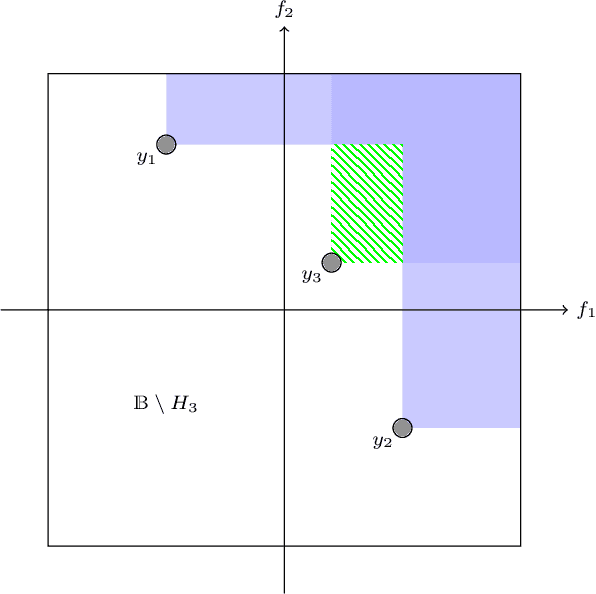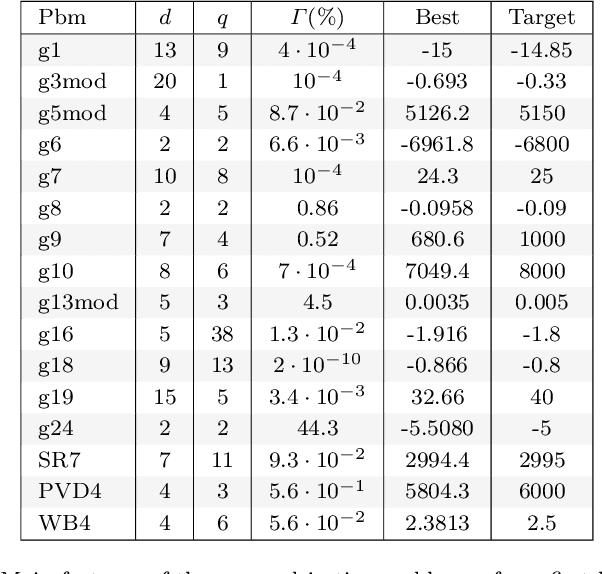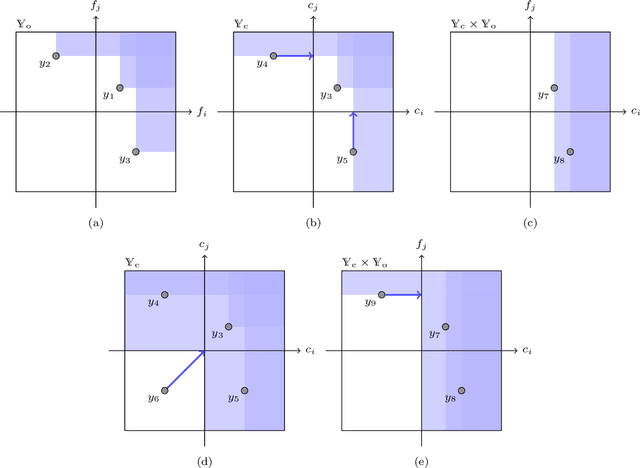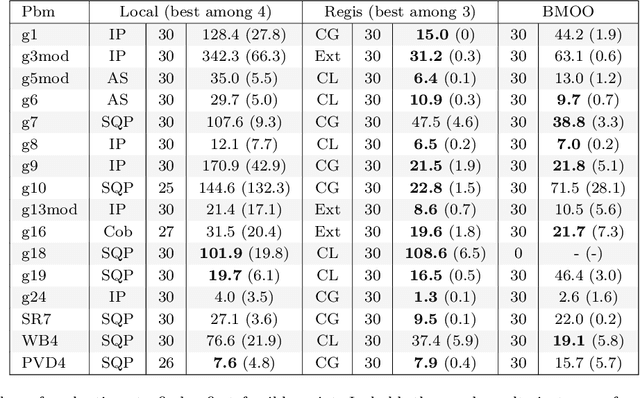A Bayesian approach to constrained single- and multi-objective optimization
Paper and Code
May 09, 2016



This article addresses the problem of derivative-free (single- or multi-objective) optimization subject to multiple inequality constraints. Both the objective and constraint functions are assumed to be smooth, non-linear and expensive to evaluate. As a consequence, the number of evaluations that can be used to carry out the optimization is very limited, as in complex industrial design optimization problems. The method we propose to overcome this difficulty has its roots in both the Bayesian and the multi-objective optimization literatures. More specifically, an extended domination rule is used to handle objectives and constraints in a unified way, and a corresponding expected hyper-volume improvement sampling criterion is proposed. This new criterion is naturally adapted to the search of a feasible point when none is available, and reduces to existing Bayesian sampling criteria---the classical Expected Improvement (EI) criterion and some of its constrained/multi-objective extensions---as soon as at least one feasible point is available. The calculation and optimization of the criterion are performed using Sequential Monte Carlo techniques. In particular, an algorithm similar to the subset simulation method, which is well known in the field of structural reliability, is used to estimate the criterion. The method, which we call BMOO (for Bayesian Multi-Objective Optimization), is compared to state-of-the-art algorithms for single- and multi-objective constrained optimization.
 Add to Chrome
Add to Chrome Add to Firefox
Add to Firefox Add to Edge
Add to Edge